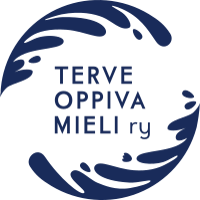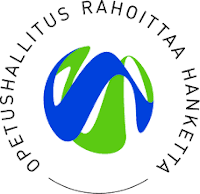Healthy Learning Mind
Healthy Learning Mind is a Finnish non-profit organization that brings happiness and well-being into Finnish schools, kindergartens, workplaces and families. Our aim is to improve self-knowledge, resilience, emotion regulation, compassion, mental well-being, general well-being and learning among children, adolescents and adults.
Research
Our health promotion work is based on Healthy Learning Mind -research project that is conducted in co-operation with Folkhälsan Research Center and University of Helsinki; The Faculty of Medicine, Department of Public Health. The research is a large randomized controlled trial. The aim is to explore the effectiveness of a mindfulness-based intervention program on e.g. attention, self-regulation, resilience, emotion regulation, mental health and learning among 12-15 year old adolescents in Finnish comprehensive schools. 3519 students and their teachers and parents participated in the study during 2014-2016. Participants were randomized in three different study groups: 1) an intervention group with mindfulness program; 2) an active control group with standard relaxation program and 3) a control group with normal curriculum. Data was collected by questionnaires and objective measurements (N=131).
Results
The statistical analysis show that mindfulness intervention is more beneficial than a regular relaxation program among adolescents. Statistically significant increase in resilience and statistically significant decrease in depressive symptoms were found in the intervention group compared to the active control group. Additionally social-emotional functioning improved in the mindfulness intervention group compared to the control group.
So far, Healthy Learning Mind –research is methodologically the most adequate and largest research conducted in school context in the field of mindfulness.
Research papers
- Beattie, M. M., Hankonen, N. E., Konttinen, H. M., & Volanen, S-M. (2022). Uptake of and Motivational Responses to Mental Health-Promoting Practices: Comparing Relaxation and Mindfulness Interventions. Frontiers in psychology, 13, 869438.
- Lassander, M., Saarinen, T., Simonsen-Rehn, N., Suominen, S., Vahlberg, T. & Volanen, S-M. (2022). Healthy Learning Mind (HLM): Cluster Randomized Controlled Trial on A Mindfulness Intervention, Moderators and Association with Perceived Socioeconomic Status, and Comparison to Other National Data. Child & Youth Care Forum (Accepted 2/2022)
- Beattie, M., Hankonen, N., Konttinen, H., & Volanen, S-M. (2022). Latent profile analysis as a method for process evaluations: Discovering response subgroups in a mindfulness intervention. Social Science and Medicine, 296, 114748.
- Saarinen, A., Hintsanen,M., Suominen, S., Vahlberg, T., Hankonen, N. & Volanen,S-M. (2022). School-based mindfulness intervention for depressive symptoms in adolescence: for whom is it most effective? Journal of Adolescence, 94, (2), 118-131.
- Lassander, M., Hintsanen, M., Ravaja, N., Määttänen, I., Suominen, S., Mullola, S., Makkonen, T., Vahlberg, T. & Volanen S-M. (2022). Pilot study on students’ stress reactivity after mindfulness intervention compared to relaxation control group. International Journal of Stress Management.
- Lassander M., Hintsanen M., Suominen S. Mullola S., Vahlberg T., Volanen S-M. Effects of school-based mindfulness intervention on health-related quality of life: moderating effect of gender, grade and independent practice in cluster randomized controlled trial. Quality of Life Research, 2021.
- Beattie, M., Konttinen, H., Volanen, S-M., Knittle, K., & Hankonen, N. Social Cognitions and Mental Health as Predictors of Adolescents’ Mindfulness Practice. Mindfulness, 2020,11, 1204–1217.
- Lassander, M., Hintsanen, M., Suominen, S., Mullola, S., Fagerlund, Å., Vahlberg, T. & Volanen, S-M. The Effects of School-based Mindfulness Intervention on Executive Functioning in a Cluster Randomized Controlled Trial. Developmental Neuropsychology, 2020
- Volanen S-M., Lassander M., Hankonen N., Santalahti P., Hintsanen M., Simonsen N., Raevuori A., Mullola, S., Vahlberg T., But A., Suominen S. Healthy Learning Mind – Effectiveness of a mindfulness program on mental health compared to a relaxation program and teaching as usual in schools: a cluster-randomised controlled trial. Journal of Affective Disorders, 2019, 260: 660-669.
- Beattie M., Hankonen N., Salo G., Knittle K., Volanen S-M. Applying behavioral theory to increase mindfulness practice among adolescents: an exploratory intervention study using within-trial RCT design. Mindfulness. 2019, 10:2, 312-324.
- Volanen S-M., Lassander M., Hankonen N., Santalahti P., Hintsanen M., Simonsen N., Raevuori A., Mullola S., Vahlberg T., But, A., Suominen S. Healthy Learning Mind – a school-based mindfulness and relaxation program: a study protocol for a cluster randomized controlled trial. BMC Psychology, 2016, 4:35.
Development
Well-being course for educators
We received a grant for a health promotion development project from the Ministry of Social Affairs and Health for years 2016-2018. We developed a mindfulness-based (MF-based) well-being course for educators and Teacher’s Guide including mindfulness practices for children and adolescents in different age groups. As a part of the project we conducted a feasibility study to examine the acceptability and feasibility of the well-being course and the best means of implementing mindfulness practices into schools.
During the development project we developed a twofold well-being course tailored for school personnel in Finnish comprehensive schools. The course was delivered in three different formats: 1) a face to face training course; 2) a combination of a face to face training course and a webcourse and 3) a webcourse.
Description of the modules
Module I is an 8-week course that offers tools for developing and cultivating mindfulness skills, body awareness, emotion regulation, self-compassion, compassion, social interaction skills, well-being in general and happiness. The goal is to present theoretical background of mindfulness as well as offer tools for individual mindfulness practice routine before implementing mindfulness practices in nurseries and schools.
Module II is a 6-week course that offers practical tools for implementing mindfulness tools in kindergartens and schools. In the course material it is presented e.g. how to introduce mindfulness to students in different age groups and how to implement mindfulness practices into daily routines. Eventually, the goal of the module is to promote the learning and well-being among young learners. During this module educators receive a Teacher’s Guide including mindfulness practices for students in different age groups and advice how to implement mindfulness practices into classrooms.
Results of the feasibility study
Research data was collected from the school personnel by questionnaires and interviews. Educators (N=54) were satisfied with the well-being course. They evaluated the course to be feasible for school personnel and they would recommend the course to their colleagues. Self-reported well-being benefits of the course indicated that school personnel adopted tools in order to promote their own and students’ well-being. A few educator reported having benefit of mindfulness skills in order to manage difficult situations at school. Additionally a few educator had noticed positive changes in the interaction with students. Educators reported mindfulness practices to be beneficial for students and they assessed mindfulness practices to be in accordance with goals and values of the school. The training course was well received among school personnel in Finnish comprehensive schools and it is applicable in the Finnish school environment.
Well-being program for leaders in education
In 2020 we received a grant for developing a well-being course tailored for leaders in education from the Finnish Work Environment Fund. Well-being program for leaders in education is an 8-week online course. The aim is to improve self-management and leadership skills by cultivating key elements of mindfulness, such as body awareness, mind, emotion regulation, self-compassion, compassion and social interaction. The course offers tools for applying mindfulness in leading the organization and supporting personnel in implementation of mindfulness practices in the curriculum.
Our work today
Today, over 700 educators have participated in our trainings. We organise several online and face to face trainings and courses for different target groups throughout the year:
- Well-being program for educators
- Well-being program for leaders in education
- Well-being program for parents
Additionally we offer lectures, workshops, retreats and customised trainings for schools, kindergartens and companies.





